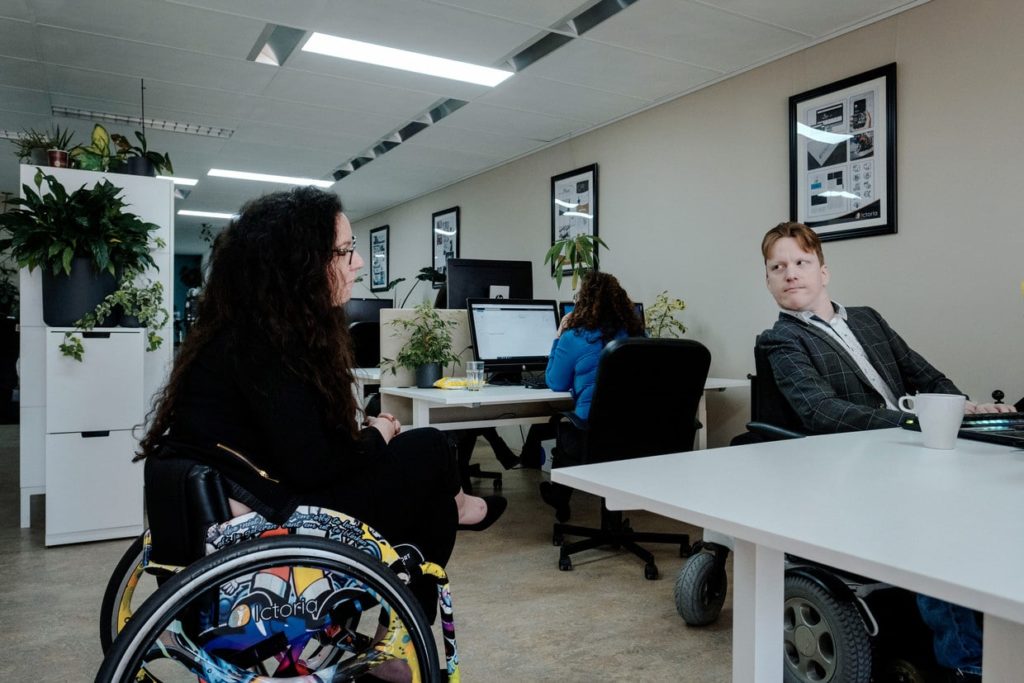Trouw newspaper – Intelligent, intermediate or higher educated in combination with a disability. That is a difficult combination on the labour market, as Nadia van den Heuvel knows from experience. That is why she started a design company with a special mission.

Trouw article with picture of Nadia van den Heuvel at the office. Photo by Merlin Daleman.
Her first job? Nadia van den Heuvel from Cuijk ended up there in a very special way. “I was part of a group of girls who used to go out together. One of them was stuck with a work assignment from her boss. She had to help someone with a disability find a job and asked if I wanted her to find me a job.”
And so, Van den Heuvel went to work as a telephone operator in the legal system. “Before I knew it, I had been promoted to team leader. They were very pleased with me: I knew all the phone numbers by heart and was therefore the quickest of all.” That sounds like an excellent start, but it also has a tragic edge. Because actually, Van den Heuvel worked as a telephone operator far below her level, which is not surprising given her lack of education.
Van den Heuvel has, as she puts it herself, a standing and walking disability. She has been in a wheelchair since childhood. And ‘so’ – because that is how it was in the eighties – she went to the mytyl school. “There, I soon noticed that the school did not meet my intellectual capabilities. I started looking after the other kids. That’s in my character.” What about the secondary school at Werkenrode? “It had a lot of ‘keep-them-occupied’ attitude. I mainly learned a lot from watching Disney films.”
Now, a few years on, Van den Heuvel runs her own design company, Ictoria, in the centre of Boxmeer. Twenty-one people work there. Some of them in wheelchairs, others with autism, or with a hearing impairment, for example. “It was actually not even my intention to employ people myself”, she recalls. “But many employers find employing people with a disability a big step at first.”
Now, she usually hires people herself first, as a steppingstone into the regular labour market. In three years’ time, she has placed at least 75 people into the regular labour market in this way. This almost always goes well, also because she keeps in touch with employer and (former) employee after the transfer.
This is only part of the article by Lukas van der Storm. Read the whole story on the website of Trouw.
Ictoria is a social enterprise all about people with unique...
At Ictoria we find, reporting our social impact is...
The essence of social entrepreneurship and innovation Social entrepreneurship...
Stuur ons een WhatsApp